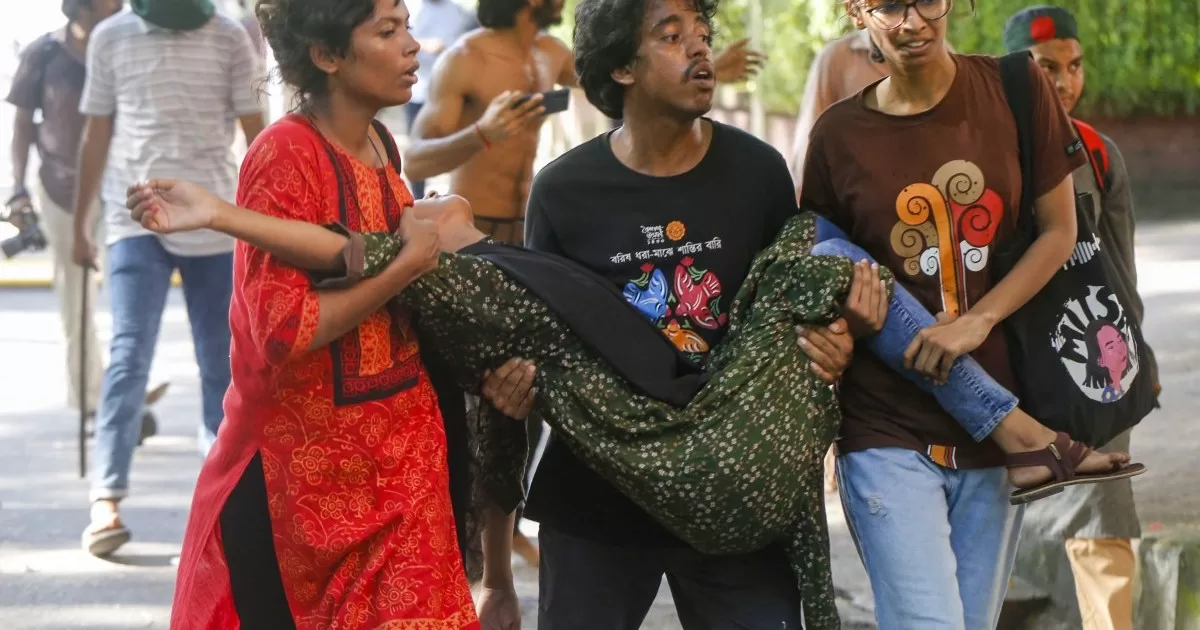Police fired tear gas and charged with batons during violent clashes between protesters rallying against quotas for government jobs and a pro-government student body, leaving at least 100 people wounded, police and students said.
The quota system reserves more than half of well-paid civil service posts, totalling hundreds of thousands of government jobs, for specific groups, including children of fighters in the country’s 1971 war of independence from Pakistan.
The violence started on Monday at campuses, including Jahangirnagar University in Savar, outside the capital, Dhaka, where the protesters were demanding an end to the quota for family members of people who fought in the war.
Police and witnesses said hundreds of anti-quota protesters and students backing the ruling Awami League party battled for hours on Monday on the Dhaka University campus, hurling rocks, fighting with sticks and beating each other with iron rods.
More protests are expected on Tuesday.
The quota system also reserves government jobs for women, disabled people and ethnic minority groups. The system was suspended in 2018, which drew similar protests. But last month, the High Court ruled for the 30 percent quota for veterans’ descendants to be restored.
That triggered new protests, with demonstrators supporting the 6 percent quota for disabled people and ethnic groups but not for the descendants of the independence war heroes.
The Supreme Court last week halted the High Court’s order for four weeks and the chief justice asked the protesters to return to their classes. The Supreme Court said it would decide on the issue after four weeks, and Prime Minister Sheikh Hasina said the issue was in the hands of the top court.
More than 50 people were treated overnight at Enam Medical College Hospital near Jahangirnagar University, said Ali Bin Solaiman, a medical officer at the hospital. He said at least 30 of them suffered pellet wounds.
The protesters accused the Bangladesh Chhatra League, a student wing of Hasina’s Awami League, of attacking their peaceful protests.
Abdullahil Kafi, a senior police official, told the Daily Star newspaper, that they fired tear gas and “blank rounds” as the protesters attacked the police. He said up to 15 police officers and more than 100 students were injured in the clashes in Dhaka.
Hasina held on to power in the January election that was boycotted by the main opposition party and its allies due to her refusal to step down and hand over the administration to a caretaker government to oversee the polls.
Her party favours keeping the quota for the families of the 1971 war heroes. The Awami League, under the leadership of her father Sheikh Mujibur Rahman, led the war with the help of India.
All the major political parties in Bangladesh have student wings that are active across the South Asian nation.
